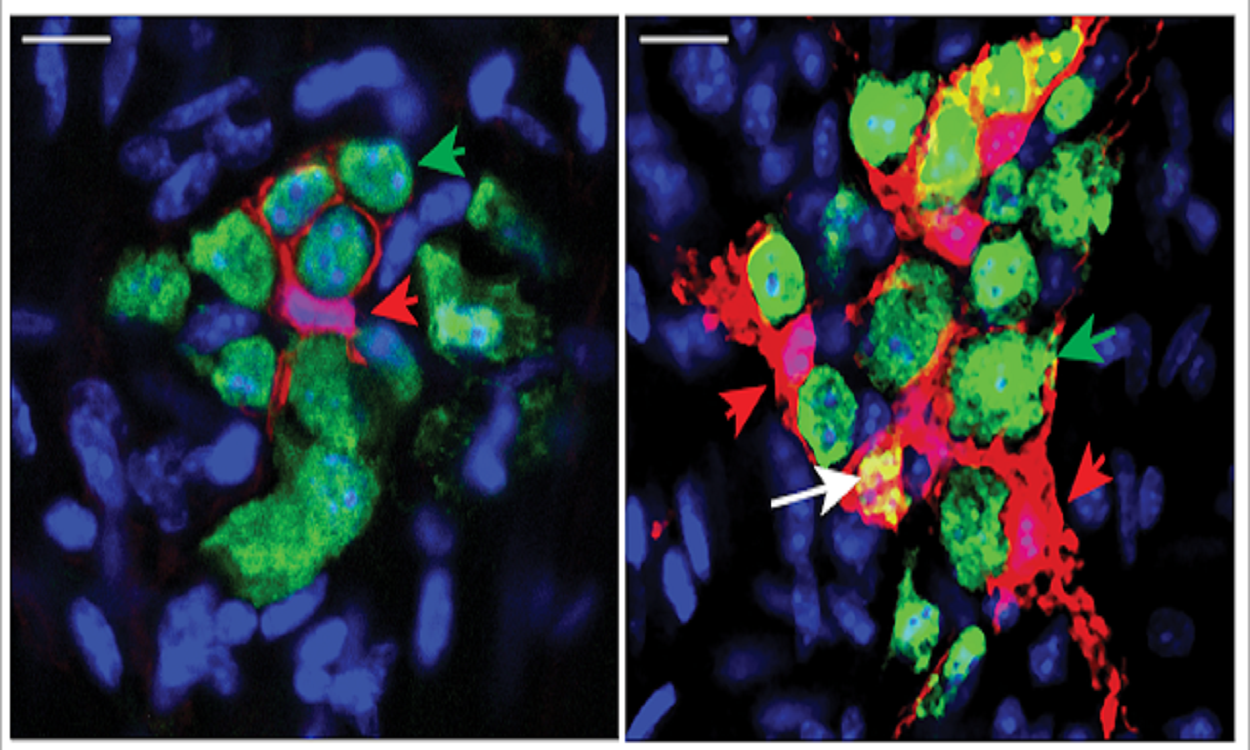
A new study refutes the long-held scientific belief that we have the same set of gut neurons throughout the life.
APR 24, 2017 | BY RATNESHWAR THAKUR
A team led by Indian-origin researchers, Pankaj Jay Pasricha, M.B.B.S., M.D., Professor of Medicine and Director of the Johns Hopkins Center for Neurogastroenterology, and Subhash Kulkarni, M.S., Ph.D., Assistant Professor at the Johns Hopkins University School of Medicine, have discovered the birth-and-death cycle of the gut neurons which are present throughout the digestive tract. The study was published in the Journal "Proceedings of the National Academy of Sciences (PNAS)."
The gut has its own mind known as the Enteric Nervous System (ENS), the largest collection of neurons outside the brain, and is located in the sheaths of the tissue lining of the digestive tract. “It regulates core functions of gustation, digestion, and metabolic regulation that help us stay alive. To have that high rate of turnover, wherein a course of three weeks all of the neurons in this system are completely renewed is an exciting finding”, says Dr. Kulkarni.
For a long time, it was a common scientific belief that gut neurons don’t regenerate and that gut’s ‘brain,’ remained relatively static shortly after birth. However, Hopkins study suggests that not only do they regenerate, but the entire network turns completely over every few weeks in adult animals.
The investigating team confined their research to the small intestines of healthy adult mice model and studied various proteins associated with neural cell death. Eight year-long research work provided irrefutable evidence of ongoing neuronal death due to apoptosis in the adult gut. “Of course, breaking dogma brings with it its own challenges, and at such times only perseverance and belief in the scientific method help overcome them’’, says the investigators.
The significant rate of nerve cell loss left the research team with the question that how the gut maintains its relatively constant number of neurons. “In addition, understanding how the healthy enteric nervous system is maintained despite an ongoing and significant mechanical, chemical, and microbial insult was a very intriguing question. These thoughts inspired and motivated throughout the course of this study”, says Dr. Pasricha.
Dr. Pasricha and Dr. Kulkarni says that “With this study, we have set a new paradigm of a dynamic enteric nervous system, where cells rapidly turnover to ensure that the system remains the same. We now know what happens in the state of health and this framework sets a platform for us and the scientific community to understand how various diseases that afflict the ENS in humans originate and what cell types they specifically target”.
Story Source:
THE HAWK
